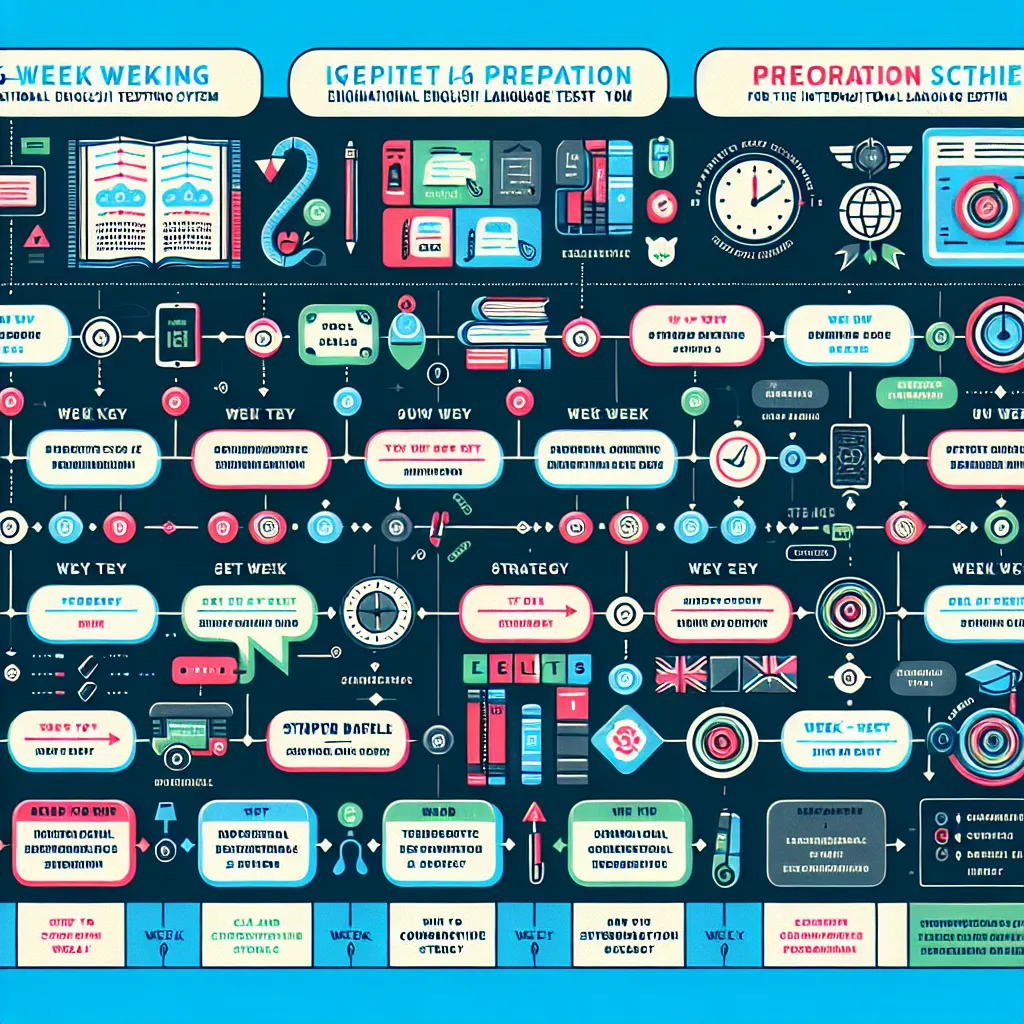Are you aiming to take the IELTS exam and wondering how to prepare effectively in just six weeks? You’re in the right place! This comprehensive guide will walk you through a step-by-step process to maximize your IELTS preparation in a limited time frame. Whether you’re a beginner or looking to improve your existing skills, this article will provide you with valuable insights and strategies to boost your IELTS performance.

Understanding the IELTS Exam
Before diving into the preparation strategy, it’s crucial to understand what the IELTS exam entails. The International English Language Testing System (IELTS) assesses your English language proficiency across four key areas: Listening, Reading, Writing, and Speaking. Each section requires specific skills and strategies, which we’ll address in our 6-week plan.
Week 1: Assessment and Planning
Assess Your Current Level
Start by taking a full-length IELTS practice test to determine your baseline score. This will help you identify your strengths and weaknesses across all four sections.
Set Realistic Goals
Based on your initial assessment, set achievable goals for each section. Remember, improving by 0.5-1 band score in 6 weeks is considered realistic for most test-takers.
Create a Study Schedule
Develop a daily study plan that allocates time for each IELTS component. Aim for at least 2-3 hours of focused study per day, with additional time on weekends.
Week 2-3: Building Core Skills
Listening Practice
- Listen to English podcasts, news broadcasts, and academic lectures daily.
- Practice note-taking while listening to improve your ability to capture key information.
- Complete IELTS listening practice tests and analyze your mistakes.
Reading Improvement
- Read a variety of texts, including academic articles, newspapers, and magazines.
- Practice skimming and scanning techniques to quickly locate information.
- Work on improving your reading speed without sacrificing comprehension.
Writing Enhancement
- Learn the structure for IELTS Writing Task 1 (describing visual information) and Task 2 (essay writing).
- Practice writing at least one essay and one graph/chart description per day.
- Focus on coherence, cohesion, and expanding your vocabulary.
Speaking Development
- Practice speaking English daily, even if it’s just talking to yourself.
- Record yourself answering IELTS speaking questions and review for areas of improvement.
- Work on fluency, pronunciation, and expanding your range of expressions.
Week 4-5: Intensive Practice and Skill Refinement
Mock Tests and Analysis
- Take at least two full-length IELTS practice tests per week.
- Thoroughly analyze your performance, identifying patterns in your mistakes.
- Focus on time management strategies for each section.
Targeted Practice
- Based on your mock test results, dedicate extra time to your weakest areas.
- Use official IELTS practice materials to familiarize yourself with the exam format and question types.
Vocabulary Expansion
- Learn and practice using academic vocabulary and idiomatic expressions.
- Create flashcards for new words and review them daily.
Week 6: Final Preparation and Review
Fine-tuning Skills
- Continue with targeted practice, focusing on areas that still need improvement.
- Review all the strategies you’ve learned for each section of the test.
Mental Preparation
- Practice relaxation techniques to manage test anxiety.
- Familiarize yourself with the test day procedures and requirements.
Final Mock Test
- Take one last full-length practice test to gauge your progress and boost confidence.
Day Before the Test
- Review your notes and key strategies, but avoid intensive studying.
- Prepare all necessary documents and items for the test day.
- Get a good night’s sleep to ensure you’re well-rested for the exam.
Key Tips for Success
- Consistency is key: Stick to your study schedule and practice daily.
- Immerse yourself in English: Surround yourself with English media and try to think in English.
- Focus on quality over quantity: It’s better to do focused, analytical practice than to rush through materials.
- Seek feedback: If possible, have a teacher or proficient English speaker review your writing and speaking.
- Stay motivated: Remember your goals and the reasons why you’re taking the IELTS.
Conclusion
Preparing for IELTS in 6 weeks is challenging but achievable with the right strategy and dedication. By following this comprehensive guide and maintaining a consistent study routine, you’ll be well-equipped to tackle the IELTS exam with confidence. Remember, the key to success lies in balanced preparation across all four skills, regular practice, and a positive mindset. Good luck with your IELTS journey!